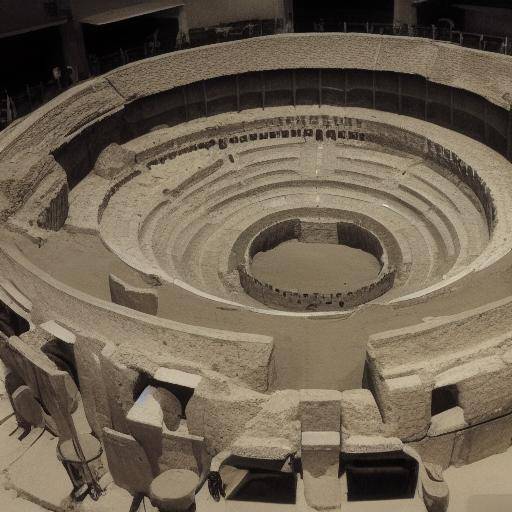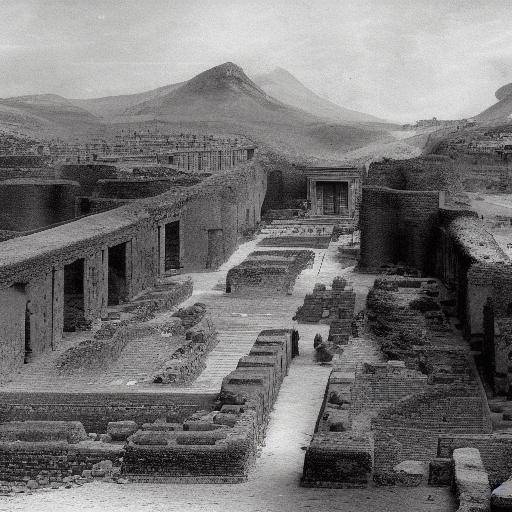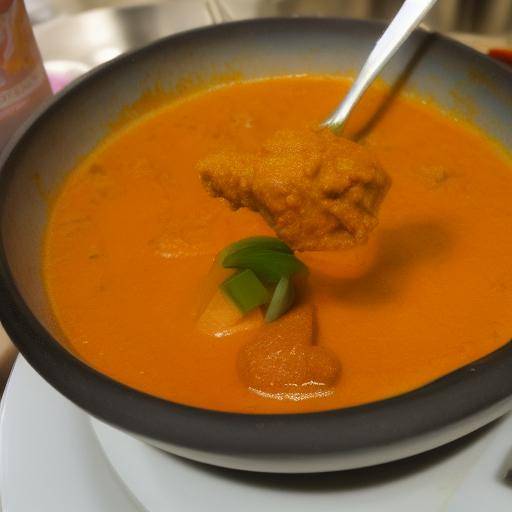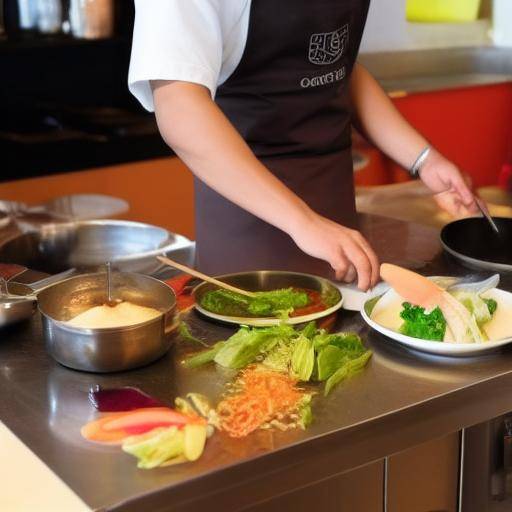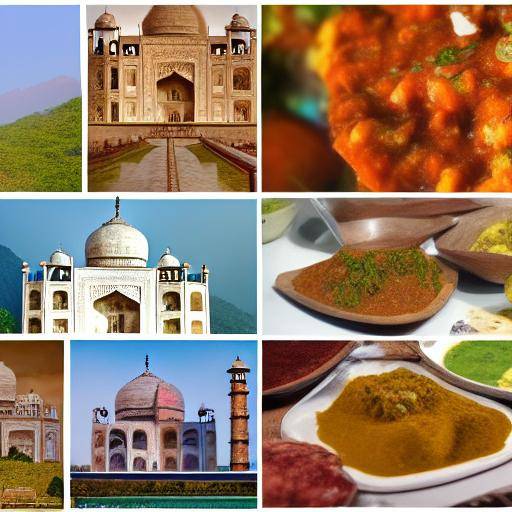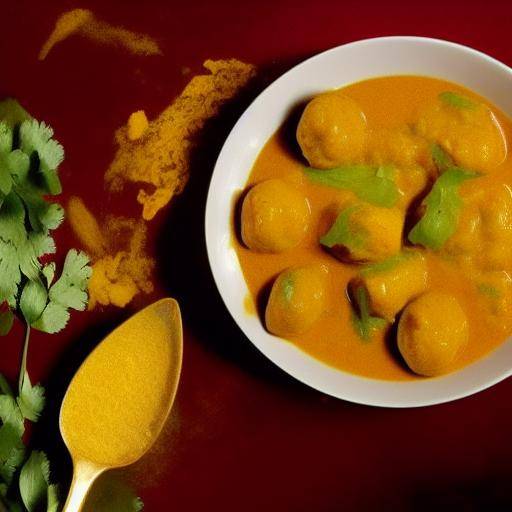
Introduction
The curry, with its unique blend of spices and flavors, has delighted palates from all over the world for centuries. In this fascinating journey, we will explore the origin and history of curry as well as its impact on global trade. From its humble beginnings to its influence on gastronomy and economy, curry reveals a rich and varied history, full of flavors, aromas, and discoveries.
History and Background
The name "curry" has roots in the Tamil language of India, where it originally referred to dishes with spiced sauces. Over the centuries, curry has evolved from the culinary traditions of India, becoming a symbol of the exotic flavors of South Asia. As trade spread, curry became a coveted product around the world, playing a vital role in Asia's maritime trade routes.
During the colonial period, curry acquired a reputation of luxury in Europe, conquering the palates of aristocrats and plebeyos alike. The addition of new local spices and adaptations led to the diversification of curry in different regions, creating a wide range of variants; from the spicy Indian masala to the soft British korma.
Analysis in Deep
Curry not only makes our dishes delicious, but also offers health benefits. The spices that make up curry, such as turmeric, cinnamon, and ginger, have proven to have anti-inflammatory and antioxidant properties. In addition, its variety and complexity of flavors allow a culinary versatility that satisfies even the most demanding palate.
However, despite its popularity, curry also presents challenges. The authenticity of recipes, the quality of spices, and the difficulty in replicating traditional flavors are common concerns. In an increasingly globalized world, curry must face the competition of new gastronomic trends and media coverage.
Comprehensive review
Curry has not only influenced gastronomy, but has also left its mark on world trade and economy. At present, interest in ethnic cuisine and exotic flavors has made curry a product of great demand. This growing market has driven the export of spices and related products, generating economic opportunities for producing countries.
Despite its popularity, curry also presents challenges in terms of sustainability and fair trade. Overexploitation of spices and labour exploitation in some areas of production raise questions about the ethics and environmental impact of curry trade globally.
Comparative analysis
By comparing curry to history and trade, we find the intersection of cultures, flavors and trade values. The history of curry reflects the exchange of knowledge and products among different civilizations throughout history. This exchange has been fundamental in the formation of our culinary identities and the mutual enrichment of cultures.
From the old trade routes of silk to modern globalization, curry has been a key actor in world trade. Its promotion of a local ingredient to a widely demanded export product highlights its impact on the global economy and its ability to connect communities through the exchange of flavours and knowledge.
Practical Tips and Accessible Tips
If you want to add the characteristic curry flavor to your dishes, we recommend you buy high quality spices, experiment with different curry variants, and learn about traditional preparation techniques. Be sure to adapt the curry to your own taste and palate, either by adding more spices, fresh ingredients, or by adjusting the spicy level.
When buying curry, it is important to consider its origin and method of production. Find options certified by fair trade and sustainability standards that support local producers and promote ethical business practices.
Specialized Information and Expert Reviews
According to experts in gastronomy, curry will continue to captivate the fans of the kitchen with its diversity of flavors and aromas. The trend towards authenticity and the exploration of ethnic flavours is expected to continue to promote the popularity of curry in global markets. In addition, the growing awareness of the provenance and quality of the ingredients is generating a demand for curry of authentic and sustainable origin.
Case Studies and Real Life Applications
In the food sector, curry has become a prominent ingredient in popular dishes, from traditional curries to innovative gastronomic fusions. In addition, in the area of trade, curry has driven the economy of producing countries such as India, Sri Lanka and Thailand, generating employment and economic development opportunities in local communities.
Future Trends and Predictions
The future of curry seems to be marked by the search for authenticity, taste and transparency in its trade. Consumers are expected to continue to demand curry produced with high quality ingredients and produced in a sustainable manner. In response to these trends, we are likely to see a greater emphasis on ethical business practices and product traceability, which meet the expectations of consumers concerned with the origin and quality of their food.
Conclusion
The curry, with its richly interwoven history with trade and culture, represents much more than a simple set of spices and flavors. Its influence on global gastronomy and international trade demonstrates the significant role it plays in the world stage. As curry continues to delight palates and cross borders, its legacy persists and evolves, connecting people from diverse cultures, flavors and traditions.
Frequently asked questions
**Q1: What is the origin of curry?**The curry has its roots in India, where it was created as a mixture of spices to season traditional dishes.
**P2: How has curry evolved throughout history?**Over the centuries, curry has diversified into different regional variants and influenced global cuisine through trade.
**Q3: What impact has curry had on global trade?**Curry has been a coveted product on maritime trade routes, influencing cultural and economic exchange between different regions.
**Q4: What health benefits are associated with curry consumption?**Curry is composed of spices with anti-inflammatory and antioxidant properties, which have been related to health benefits.
**P5: What is the importance of curry in modern gastronomy?**Curry has enriched global gastronomy, inspiring innovative dishes and culinary fusions that integrate its distinctive flavors.
**Q6: How can I make sure to buy curry ethically and sustainably?**Looking for curry, it is advisable to prioritize options certified by fair trade and sustainability standards that support local producers and promote ethical business practices.
With this complete immersion in history, flavors and curry trade, we hope to have broadened your understanding of this fascinating gastronomic and economic phenomenon. Curry is not just a mixture of spices, but a living testimony of human connection through food and cultural exchange.


















